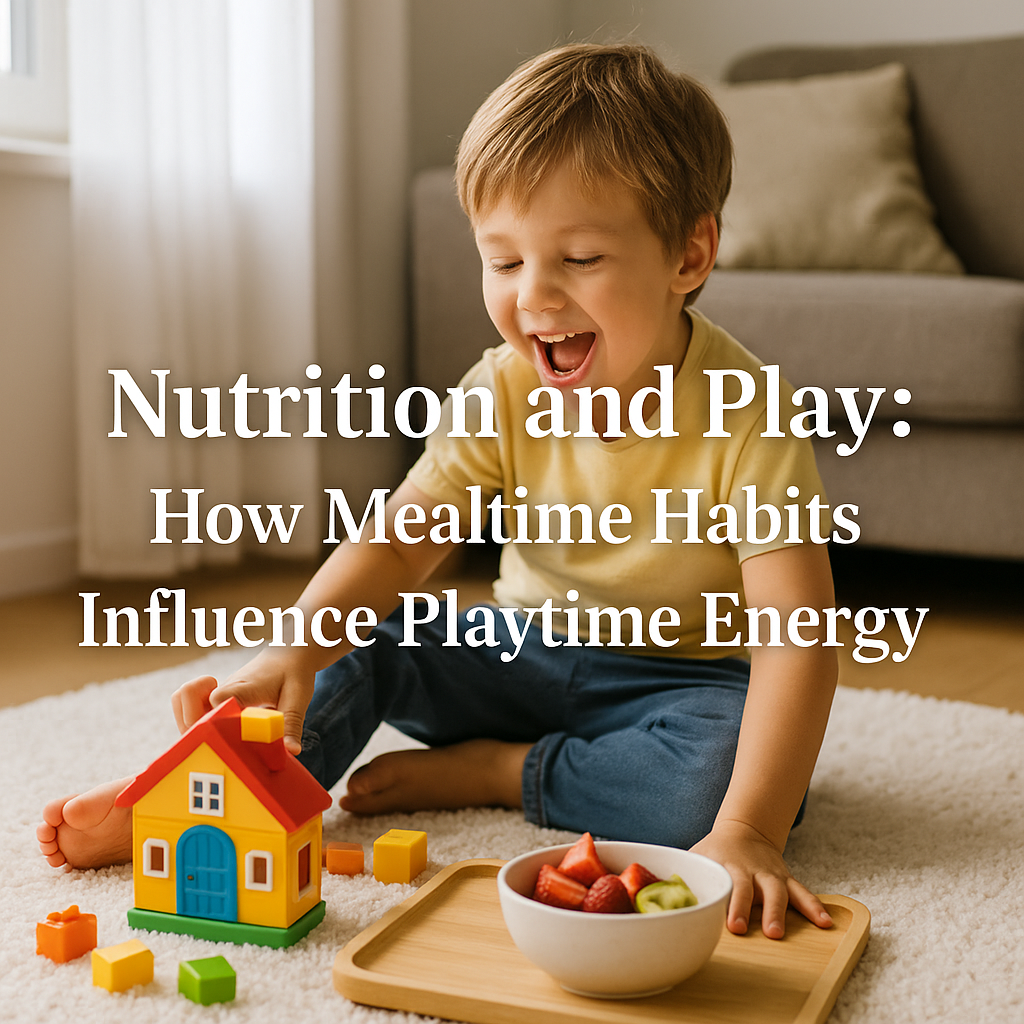
Nutrition and Play: How Mealtime Habits Influence Playtime Energy
Share
Introduction
For children, play is more than just fun — it’s essential for physical growth, cognitive development, and social skills. But the quality of playtime can be directly influenced by what and when they eat. Poor mealtime habits can leave children sluggish or irritable, while balanced nutrition can fuel hours of active, joyful play.
A 2018 study in Appetite found that children who consumed nutrient-dense meals with consistent timing had better sustained energy levels and improved mood during free play compared to those with irregular eating patterns.
1. The Link Between Nutrition and Energy
Carbohydrates provide quick bursts of energy, but pairing them with proteins and healthy fats ensures sustained stamina. Without these balanced meals, children may experience mid-play energy crashes, reducing both engagement and enjoyment.
2. Timing Matters
Eating too close to playtime can cause discomfort, while going too long without food can lead to fatigue. Experts recommend offering balanced snacks 1–2 hours before active play — for example, a banana with peanut butter or whole grain crackers with cheese.
3. Hydration’s Role in Play
Water is often overlooked, yet even mild dehydration can impact mood, concentration, and physical performance. Providing water before and during play keeps children energized and focused.
4. Supplements as an Energy Support
While whole foods should be the primary energy source, supplements can help fill nutrient gaps, especially for picky eaters. A 2020 review in Nutrients highlighted that deficiencies in iron, vitamin D, and B vitamins can lower physical activity levels in children.
Conclusion
A child’s ability to fully enjoy and benefit from play depends on what fuels their body. Consistent, balanced meals — supported by hydration and necessary supplements — create the foundation for vibrant, engaged, and sustained playtime.
